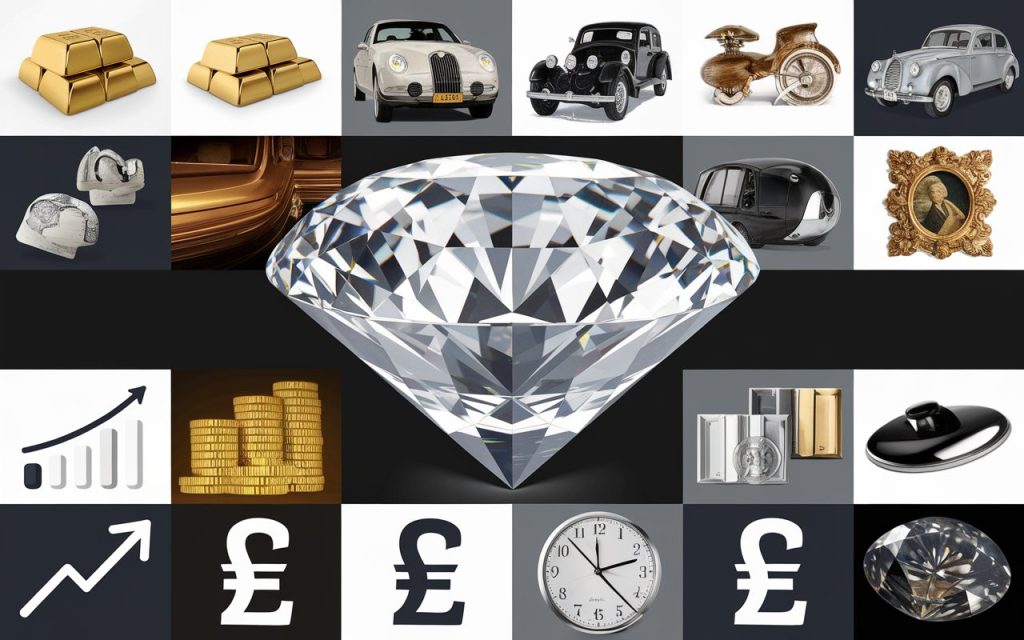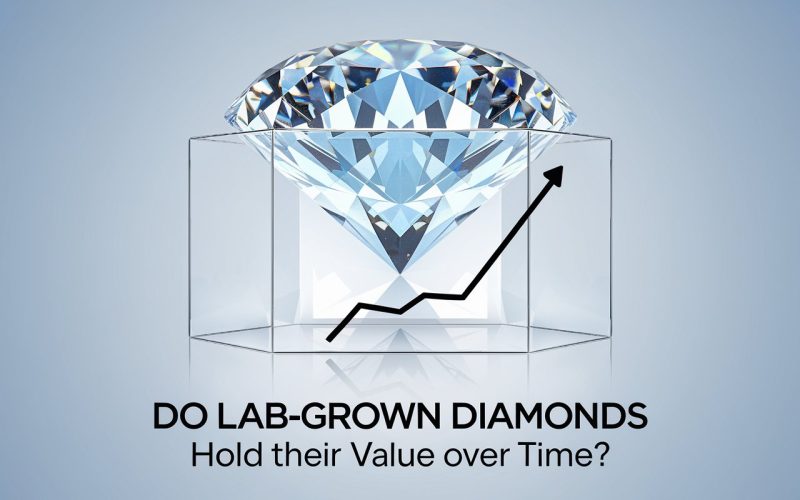Lab-grown diamonds have gained immense popularity due to their affordability, ethical sourcing, and environmental benefits. However, one of the most frequently asked questions by potential buyers is: Do lab-grown diamonds hold their value over time? Understanding their resale value and market trends is crucial for making an informed purchase decision.
Understanding Diamond Value Retention

The value of any diamond—whether natural or lab-grown—depends on various factors, including rarity, demand, market trends, and resale potential. Traditionally, natural diamonds have maintained a higher resale value due to their historical significance, controlled supply, and perceived rarity. But does the same apply to lab-grown diamonds?
Related Blog Post: Diamonds: April Birthstone Guide
Related Blog Post: Easter Lab grown Diamond Jewelry Guide: 8 Perfect Picks
Factors Influencing the Value of Lab-Grown Diamonds

1. Manufacturing and Supply
Lab-grown diamonds are produced in controlled environments using advanced technology. Unlike natural diamonds, which take billions of years to form, lab diamonds can be created in weeks. This ability to mass-produce them reduces their scarcity, impacting their long-term value.
2. Market Demand and Pricing Trends
The demand for lab-grown diamonds is increasing, especially among eco-conscious and budget-friendly buyers. However, due to advancements in production technology, their prices have been steadily declining over the years. Unlike natural diamonds, which retain some resale value due to limited supply, lab-grown diamonds may continue to depreciate as manufacturing becomes more cost-efficient.
3. Resale Market Challenges
Currently, the resale market for lab-grown diamonds is not as established as it is for natural diamonds. Most jewelry retailers and pawn shops are reluctant to buy pre-owned lab-grown diamonds, as their prices are continuously dropping. This makes it difficult for sellers to recover a significant portion of their original investment.
4. Brand Influence and Certification
Some well-known jewelry brands offer lab-grown diamonds with premium pricing and lifetime trade-in programs. Additionally, diamonds certified by reputable gemological institutions like IGI or GIA may have better resale potential compared to uncertified stones.
Comparing Resale Value: Lab-Grown vs. Natural Diamonds

Should You Buy a Lab-Grown Diamond?
If your primary goal is to purchase a diamond as an investment, lab-grown diamonds may not be the best option. However, if you are looking for an ethical, budget-friendly, and visually identical alternative to natural diamonds, they are an excellent choice. Many buyers prioritize beauty and affordability over resale value, making lab-grown diamonds a smart purchase for everyday wear and special occasions.
Related Blog Post: Lab-Grown Diamonds vs. Cubic Zirconia: The Ultimate Guide for Wedding Bands
Related Blog Post: Do Women Care if a Diamond is Lab Grown?
Conclusion
Lab-grown diamonds offer significant benefits in terms of cost, sustainability, and ethical sourcing, but they do not hold their value over time like natural diamonds. Their resale potential is limited due to ongoing advancements in technology and fluctuating market demand. However, for those who value aesthetics and affordability over long-term investment, lab-grown diamonds remain a compelling option.
Would you choose a lab-grown diamond despite its lower resale value? Let us know your thoughts!

